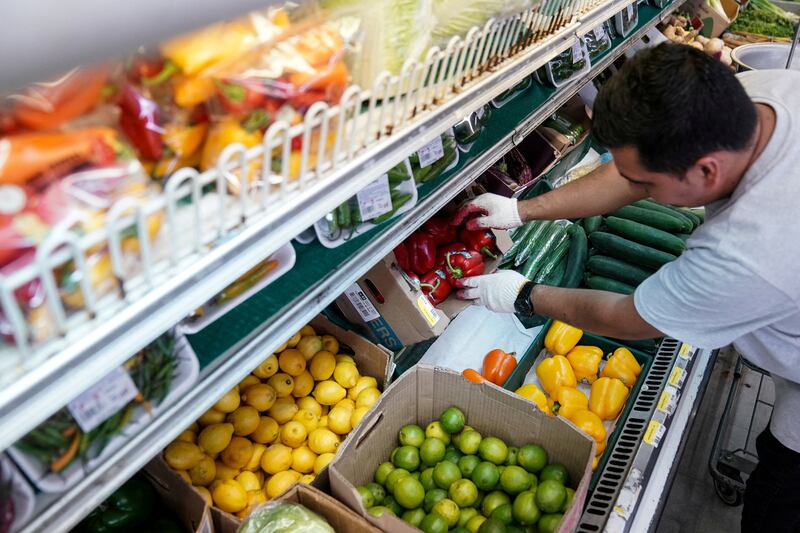Global stock markets ended higher at the close of trading on Friday as government data in the US and the eurozone showed that inflation has slowed, with Wall Street posting a positive performance on both a monthly and quarterly basis.
The US PCE Price Index, which is the Federal Reserve's preferred measure of inflation, showed that inflation cooled to 5 per cent in February from 5.3 per cent in the previous month.
But the inflation outlook in the world's biggest economy has worsened, according to Fed governor Lisa Cook.
"If data shows continued strength in the economy and slower disinflation, we may have more work to do", she said in prepared remarks for an economic conference in Ohio.
In the eurozone, the annual inflation rate beat projections, posting a significant decline to 6.9 per cent in March from 8.5 per cent in the previous month, the EU's statistics agency reported.
Investors are monitoring if the latest inflation data will be enough reason for global central banks to tame their interest rate increases.
The European Central Bank implemented a 50-basis point rise on March 16, and the Federal Reserve and the Bank of England followed suit with 25-basis-point increases, despite the substantial stress in financial markets following the collapse of two US banks and the forced purchase of Credit Suisse by UBS.
"The decisions highlighted policymakers’ commitment to bringing inflation back down towards target levels of 2 per cent, and also served to show confidence in their banking systems," Khatija Haque, chief economist and head of research at Emirates NBD, Dubai's biggest bank by assets, wrote this week.
At the close of trading on Wall Street, stocks rallied on the inflation data, with the Dow Jones Industrial Average gaining 1.26 per cent.
The S&P 500 added 1.44 per cent to settle at its highest level since February 15. It recorded a second consecutive quarter of gains, led by its technology sector, which surged 21.5 per cent in the first quarter.
The tech-heavy Nasdaq Composite rose 1.74 per cent and posted a quarterly gain of 16.8 per cent, its biggest since the second quarter of 2020.
In the US, "core inflation may have eased on a monthly basis but is expected to remain steady on a yearly basis around the 4.7 per cent mark. A read in line with expectations, or ideally lower than expected, could keep the Fed hawks at bay, and let the dollar further relax", Ipek Ozkardeskaya, a senior analyst at Swissquote Bank, wrote in a note.
In Europe, London's FTSE 100 closed 0.2 per cent higher, taking cues from government data that showed the British economy inching up 0.1 per cent in the fourth quarter of 2022 — barely avoiding a recession.
Elsewhere, Frankfurt's DAX added 0.7 per cent and the Paris CAC 40 gained 0.8 per cent.
"If the upside pressure in core inflation persists, no matter how fast we see the headline inflation fade, the ECB will stick to its guns to abate inflation and the euro will continue its journey higher," Mr Ozkardeskaya said.
In Asia earlier, stock markets rose on optimism that the problems in the banking sector were over and that central banks would ease interest-rate increases.
At the close of trading, Tokyo's Nikkei 225 gained 0.9 per cent and the Shanghai Composite rose 0.4 per cent.
Hong Kong, in particular, was boosted by technology stocks and the news that Alibaba, the Chinese e-commerce major, was planning for a listing. The Asian financial centre's Hang Seng index added 0.5 per cent.
In commodities, oil prices closed higher to post their second consecutive week of gains, as the supply disruption through a Turkish port continues to affect an already tight market.
Brent rose 0.63 per cent, or $0.50, to settle at $79.77 a barrel, while West Texas Intermediate added 1.75 per cent, or $1.30, to close at $75.67 a barrel.
Gold meanwhile, fell about 0.6 per cent, or $11.50, to $1,986.20 an ounce.







